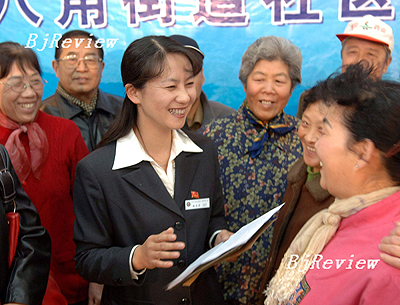
The Standing Committee of the National People's Congress, China's top legislative body, has for the second time deliberated on the new version of the Emergency Response Law. The new version deletes the provision under which news media are barred from reporting on emergencies or releasing information concerning emergency events without authorization from relevant authorities.
The amended version of this law gives more credence to public opinion, and the growing role of Chinese citizens in legislation is widely acclaimed as a more democratic approach by the government. China's renowned legal professor, Cai Dingjian, Director of the Constitutionalism Research Institute of China University of Political Science and Law, recently commented on the decision to amend this law and on the social effect of mass media. In an interview with The Economic Observer, a leading Chinese business weekly, Cai said that China's steady social transformation demands a free and responsible press in order to secure democratic rights for the people.
Excerpts:
Inform the public
Once an emergency event takes place, disclosing it might prevent further panic. However, facts prove that the embarrassments caused by blocked information exchanges between the public and the government during the SARS epidemic in 2003 produced unnecessary social hostility. Therefore, to keep people informed is more helpful in resolving problems. During an emergency, people can easily turn to rumors if mistrust surrounds a silent government. Once the authority's image has been damaged, no remedy is going to improve matters.
The Chinese Government is increasingly aware of the significance of soliciting public opinions on issues of common concern. The most recent review of the draft Employment Promotion Law by the Standing Committee of the National People's Congress is proof of this process. Strong public opposition against employment discrimination resulted in the inclusion of a whole chapter of stipulations in the draft to curb such discriminations. The draft is now in its final version for deliberation.
As we know, China is in a process of dramatic social upheaval. An intensified public awareness is being felt as individuals become more independent and interest groups diversify. Social problems, therefore, are more complicated, and conflicts among different social classes are more obvious. A wise authority will certainly choose to respect people's right to know by fostering a responsible and clean media environment.
Stability hinges on public support for the ruling party. Local officials, who hide the truth and misrepresent information by preventing objective reporting, must be punished.
Reform must go deeper
Free and responsible media can affect society in three major areas as follows:
First, objective and accurate reporting can help build correct concepts of value. The majority of Chinese intellectuals were previously perhaps ignorant of the judicial aspects of the Constitution until a migrant worker, Sun Zhigang, was beaten to death in Guangzhou, southern China's Guangdong Province, in March 2003. Sun was killed whilst in police custody, after being detained for not carrying a valid temporary residence permit. Stirred by Sun's case, legal experts wrote to the Standing Committee of the National People's Congress to initiate a review of the constitutionality of the regulation on urban vagrant management, which was eventually abolished. Through intensive media reports, people learned that government power should be limited, and legislation should remain within the boundaries of the Constitution, and should not violate the latter. A constitutional regime requires that both citizens and the legislature follow constitutional principles, as well as monitor the legitimacy of the laws enacted.
| 